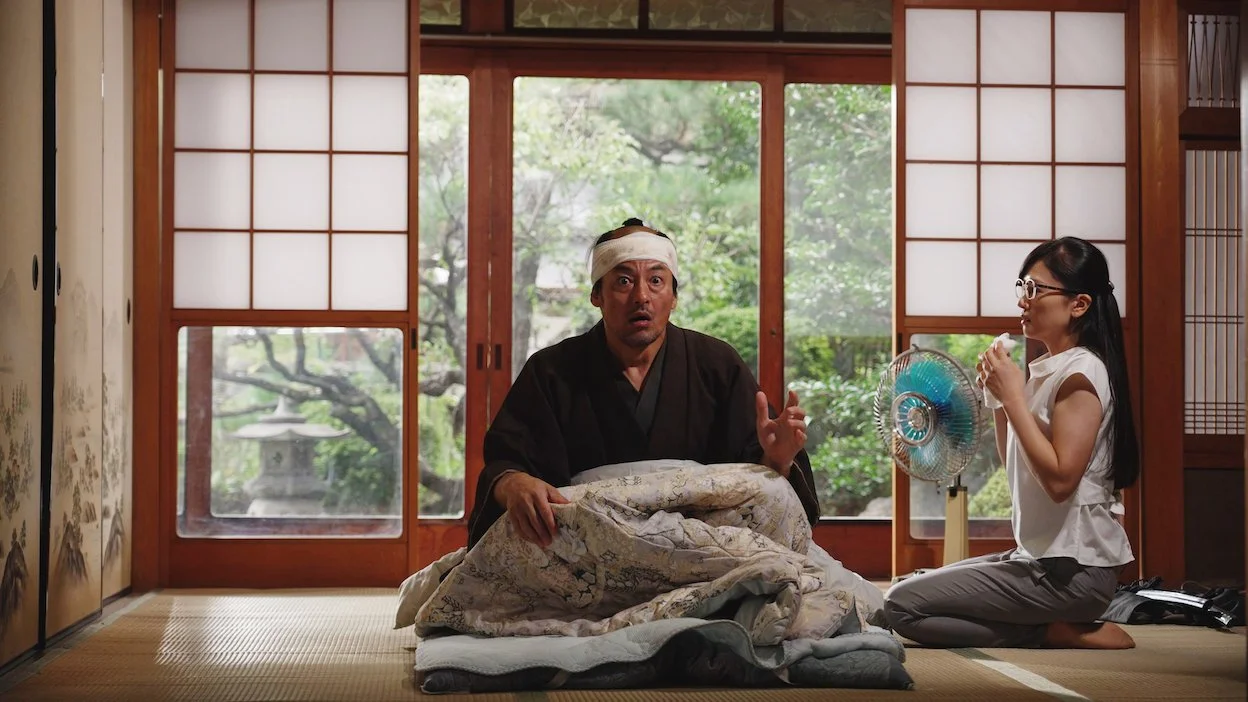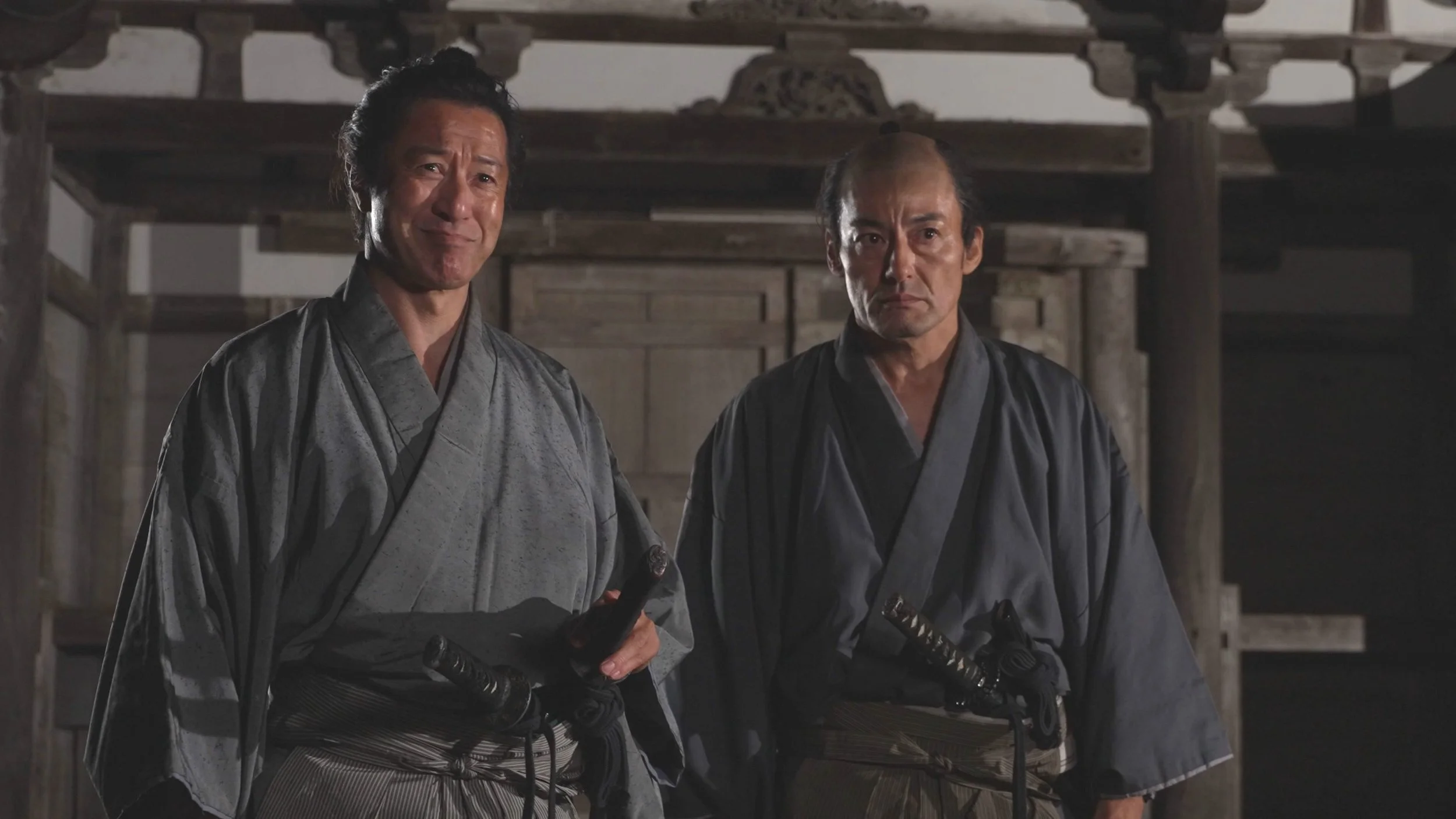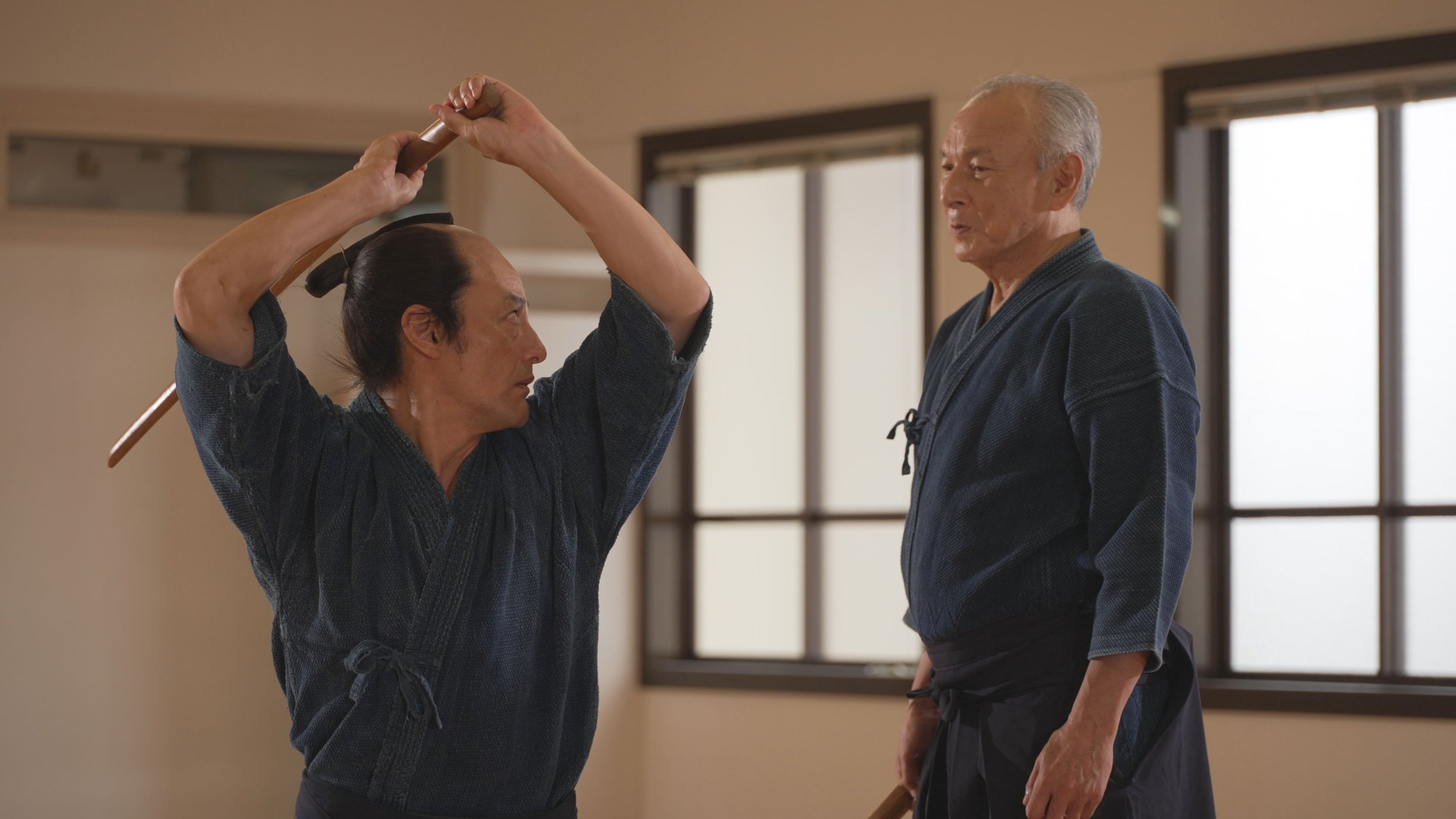Money is Overrated
This is the kind of all-hands-on-deck, right-kind-of-sincere moviemaking that makes you forget the drudgery of Disney.
A Samurai in Time
Director: Junichi Yasuda • Writer: Junichi Yasuda
Starring: Makiya Yamaguchi, Norimasa Fuke, Yuno Sakura, Rantaro Mine
Japan • 2hrs 10mins
Opens Hong Kong June 12 • IIA
Grade: B+
Okay, you know what I was saying aboout Better Man and Sinners, and how we’re not actively supporting original filmmaking, instead paying gobs of money to see a shit copy of Lilo & Stitch and then whining about there being nothing original at the cinema? Throw A Samurai in Time | 侍タイムスリッパー on that pile. Is it anything we’ve never seen before? Probably not. It’s samurai, and movies about the movies, and time travel. But it’s all of them at once in a refreshingly novel way that’s also free of inappropriate romance and monosyllabic wannabe lovers. From Japan. Sure, it’s earnest and nostalgic but it’s also genuinely entertaining, with some good gags, good swordplay and a charming cast. There is still good in the world.
Word on the street is the film cost industry journeyman Junichi Yasuda JPY26 million (roughly HK$1.4 million) of his own money (plus a grant), who made up any shortfalls in the costume and period detail-heavy film by roping in the cast to work as crew – and taking up writer, editor, cinematographer and producer duties himself as well. After a very personalised promotional campaign – Yasuda and some friends stood outside the one theatre (Ikebukuro’s Cinema Rosa) playing the film with fliers – it went on to make JPY1 billion (HK$54 million) – and won best film and best editing from among its seven Japan Academy Film Prize nominations in March. A Samurai in Time is on an El Mariachi or One Cut of the Dead trajectory. Fuckin’-A, guy.
A Samurai in Time is precisely what it sounds like it might be. In pre-Meiji Edo a warrior with the Aizu domain, Shinzaemon Kosaka (Makiya Yamaguchi), vows to defeat his Choshu rival Yamagata Hikokuro (Ken Shonozaki) in combat following some sort of insult. It’s all very political and no one really understands what’s going on but honour demands action. The two samurai meet one dark and stormy night and prepare to clash swords when boom. Lightning strikes, sending Shinzaemon hurtling through time to modern Kyoto. He wakes up and looks around. Things seem a bit different but yes. It’s Edo. Kyoto. Well, it’s Edo as recreated on a Kyoto television series set. Before you can say vain actor and frazzled director, Shinzaemon has been mistaken for an extra and takes his role as avenging warrior a little too seriously. The only thing that stops him from going to jail – which he wouldn’t understand anyway – is the series’ ambitious AD Yuko (Yuno Sakura, who was also an AD on the film) – who helps him out with a doctor after he hits his head and finds him a place to stay with the nearby temple priest (Yoshiharu Fukuda) and his partner Setsuko (Manko Kurenai). She knows it because the historical building is a frequent shooting location.
Time goes by and Shinzaemon acclimates himself to life 400 years in the future, taking a job as a professional samurai movie extra, training with swordmaster Sekimoto (Rantaro Mine) and befriending the show’s star Kyotaro Nishiki (Tsutomu Tamura). When a hotshot young director decides he’s going to “reimagine the jidaigeki film” he plans to do so with a legendary actor: Kyoichiro Kazami (Norimasa Fuke), who it turns out is actually Yamagata. And he wants Shinzaemon in the film too.
A Samurai in Time wears its heart on its sleeve, first as a tribute to the late Seizo Fukumoto, known as Japanese cinema’s pre-eminent dying samurai, killed hundreds of times on screen (including in 13 Assassins and The Last Samurai) and second as a love letter to jidaigeki cinema, samurai movies set in pre-Meiji Japan that are – or were – as beloved in Japan as westerns in the United States, and as kung fu films here. All of course are forms that are, with the occasional outlier, dying out as tastes change and costs to produce them rise. But it’s also a minor key comedy, in which Yamaguchi hits all the right notes as the man way, way out of time (“Wow, he really knows the formality!”), balancing those notes with the more bittersweet ones about the choice between living in the past or moving on despite unfinished business and maybe some regrets. As the older Yamagata/Kazami, it’s hard to tell if Fuke is even trying to act considering how much time he spends gleefully taking the piss out of Shinzaemon. As the displaced warrior that’s had far more time to consider his past, and his future, Fuke brings a laid back calm to Yamagata he’s earned – and that Shinzaemon has yet to. The two have a strangely lived in dynamic for a fantasy, but it also grounds the film in recognisable emotion. And thankfully Yasuda doesn’t try for a romance betwen Yuko and Shinzaemon, letting Sakura create a character with actual goals beyond a husband and who speaks in complete sentences. If anything, Yasuda goes for anti-romance, lacing Shinzaemon with a hint of a crush on Yuko but not acting on those instincts, knowing it’s best if they stay friends. Gobsmacking, I know. A Samurai in Time could probably shave off 15 or 20 minutes, and a few more bucks might have added a smidge of polish but its production is otherwise ace. And even if it weren’t? It wins points for enthusiasm and originality. That’s really all I ask.



